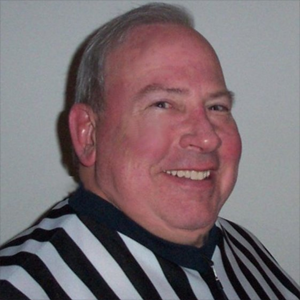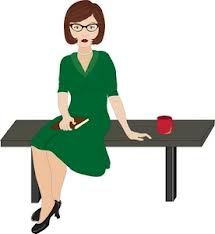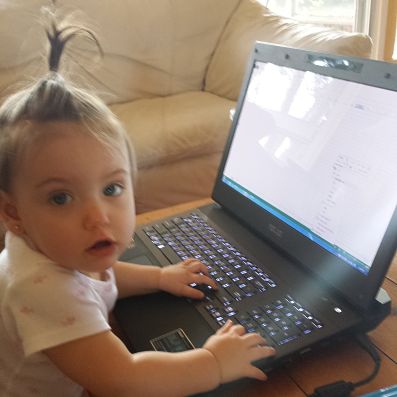
Rndballref
20 Years Experience
Chicago, IL
Male, 60
For twenty years I officiated high school, AAU and park district basketball games, retiring recently. For a few officiating is the focus of their occupation, while for most working as an umpire or basketball referee is an avocation. I started ref'ing to earn beer money during college, but it became a great way to stay connected to the best sports game in the universe. As a spinoff, I wrote a sports-thriller novel loosely based on my referee experiences titled, Advantage Disadvantage
The 3 second area (the paint) is defined by the outer edge of the lines. Any part of your foot on the line puts you in the paint.
The outer line on the court is out of bounds, so on a throw in the player who is throwing the ball in could step on the line before throwing in as long as the foot does not step on the court.
There is no provision in NFHS rules for a running clock. Club or AAU traveling rules may allow for a running clock.
The rulebook provisions of the 3 second rule is that a player cannot be in the lane for 3 seconds or more while his teamates have established team possession in their frontcourt.
If a player has either foot on the edge or line which defines yhe lane, he is in the lane.
There is an interesting exception to a 3 count. A player can legally be in the lane for as much as 6 seconds as follows: he is in the lane for a count if 2 and receives the ball, the holds the ball for 2 counts and dribbles - he gets another 2 count. Then he must shoot .
But to your point, most experienced officials rarely call 3 seconds. You see newer referees at freshman games call it way too often. Most officials are taught that 3 seconds should only be called if and only if it results in an undue advantage. Thr principal is called Advantage Disadvantage. This means that when it is called it is ususlly a late call.. for example a player is camped out and normally when the shot goes up the 3 seconds restrictions are lifted, but if that player gets the rebound because he was there for more than 3 seconds the official should call it then.
A good preventative officiating move is for the official to shoo players out of the paint verbally to avoid having to call 3 secs too often.
It is entirely referee's judgement. Look for lower leg flexing or ankle rotation.
Inner City English Teacher
 Are you pressured by administrators to pass kids that aren't ready yet?
Are you pressured by administrators to pass kids that aren't ready yet?
Private Detective
Sr. Software Engineer
 Are those $12,000 "learn to program" bootcamps a rip-off?
Are those $12,000 "learn to program" bootcamps a rip-off?
See my answer about nine questions back where Cody asked, "Who has the authority to throw a fan out of a game?"
from the NFHS rulebook, " A player is in control of the ball when he/she is holding or dribbling a live ball inbounds". There are a few exceptions such as a jumper on a jump ball obtaining the ball before it touches the floor or a non-jumper.
Notice it does not exclude jumping in the air nor does it require 2 hands on the ball.
yes.
-OR-
 Login with Facebook
Login with Facebook (max 20 characters - letters, numbers, and underscores only. Note that your username is private, and you have the option to choose an alias when asking questions or hosting a Q&A.)
(A valid e-mail address is required. Your e-mail will not be shared with anyone.)
(min 5 characters)
By checking this box, you acknowledge that you have read and agree to Jobstr.com’s Terms and Privacy Policy.
-OR-
 Register with Facebook
Register with Facebook(Don't worry: you'll be able to choose an alias when asking questions or hosting a Q&A.)